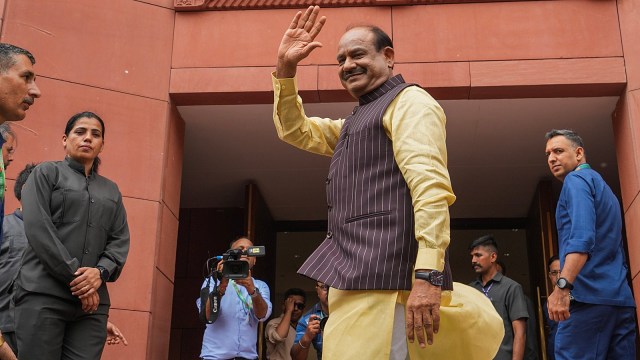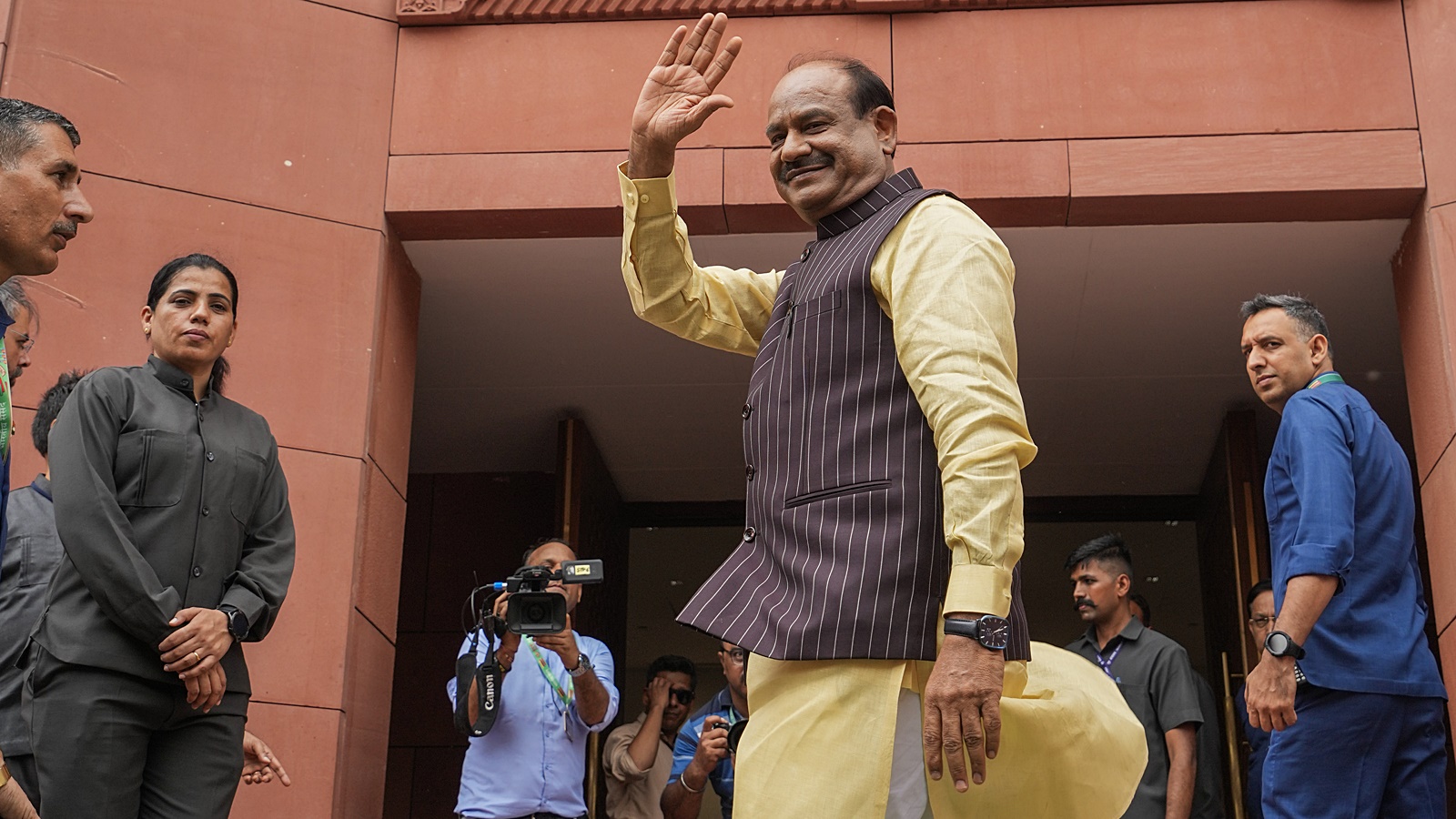
The excitement during the past week over the choice of the Speaker for the 18th Lok Sabha came to an end with the election of Om Birla by voice vote. Under Article 100 of the Constitution “all questions at any sitting of either House or a joint sitting of both Houses shall be determined by a majority of votes of the members present and voting”. The term “majority of votes” implies an actual vote in the House as otherwise a majority cannot be determined. However, the voice vote is an accepted practice in legislatures. But the Constitution does not recognise this practice. If the Opposition wanted to challenge the result of the voice vote, they could have pressed for a vote. Obviously, they did not want to do it.
Speakers have been chosen mostly by consensus except on four occasions in the past. The basic reason is that the Speaker belongs to the whole House and not to the ruling party alone. He needs the support and trust of all sections of the House just as all of them need his indulgence and protection. Therefore, political parties try to arrive at a consensus. In the initial days of the republic, political leaders, steeped in the British tradition, chose men of great stature as Speakers because they believed in moral qualities such as impartiality and objectivity. But, as politics and political perspectives evolved over a period of time, the choice of the Speaker became a purely partisan affair. Ruling parties always want their own person in the post because it can be advantageous in times of difficulties in the House. These advantages are many. For example, the Speaker is the last word on everything connected with the House. Under Article 110(3), the Speaker alone has the authority to certify that a bill is a money bill. The advantage of this action is obvious in the sense that the money bill can’t be passed or rejected by the Rajya Sabha. It can only make a recommendation which may or may be accepted by the Lok Sabha, which alone has a final say in the matter.
Similarly, bills are referred to the Standing Committees by the Speaker. He can take a view that the bills need not be referred and his decision is final. Similarly, the Speaker can disallow any Parliament question tabled by a member who cannot even enquire why his question has been disallowed. The Speaker is also the tribunal who decides cases of defection of MPs, that can be tremendously useful for political parties in power. Thus, the finality of the Speaker’s decision can be a source of comfort and confidence for ruling parties.
The office of the Speaker originated, along with the emergence of Parliament, in 13th century England. The history of the House of Commons of England is the history of conflicts and confrontations between the Commons and the kings. The presiding officer of the Commons came to be called the Speaker because he was authorised by the House to speak to the King on behalf of the members of the Commons. The English kings constantly harassed the members of the Commons. The Speakers, in fact, suffered imprisonment when they interceded on behalf of the Commons. The history of the British Parliament also shows that as many as seven Speakers were beheaded by kings between 1395-1535. This led to a situation where the person elected as Speaker would try to run away but would be held back physically by the MPs and dragged to the Speaker’s chair. This later gave rise to the practice of the Speaker-elect making motions of hesitation when he is escorted to the Chair by the Prime Minister and the Leader of Opposition.
The Speaker is the protector of the interest of the MPs. In 1642, King Charles I entered the House of Commons with his armed bodyguards. He sat on the Speaker’s Chair and ordered the Speaker to surrender five Members of the Commons who were charged with treason. Speaker William Lenthal’s response created history. He said, “May it please your majesty, I have neither eyes to see nor tongue to speak in this place, but as the House is pleased to direct me, whose servant I am here and I humbly beg your majesty’s pardon that I cannot give any other answer than this to what your majesty is pleased to demand of me.” These words echo through centuries for he defied the King at great risk to his life. This is the hallowed tradition of the office of the Speaker.
The 18th Lok Sabha poses great challenges to the Speaker. It is customary for every party leader to glorify the past “achievements” of a Speaker when he occupies the chair the second time. But as they go along, the political dynamics in the House will come into full play. It takes great wisdom and tact to deal with an Opposition which has 234 MPs in the House. The only way a Speaker can run the House smoothly is by being fair to all. In the context of the Parliament, it would mean a non-partisan approach informed by objectivity and absolute impartiality. Practice and Procedure of Parliament by M N Kaul and S L Shakdhar speaks about the impartiality of the Speaker in the following words: “Within the walls of the House his authority is supreme. This authority is based on the Speaker’s absolute and unvarying impartiality – the main feature of his office, the law of its life. “
Impartiality of the Speaker is not a truism or a trite expression. The dominant concern of MPs of the Lok Sabha yesterday while felicitating the Speaker was that he should be impartial. From their experience, they know what it meant. India’s democratic system has invested great confidence in the impartiality of the Speaker. Wisdom demands that it should not be allowed to become a matter of grave concern in Parliament in the days to come.
The writer is former Secretary General, Lok Sabha



